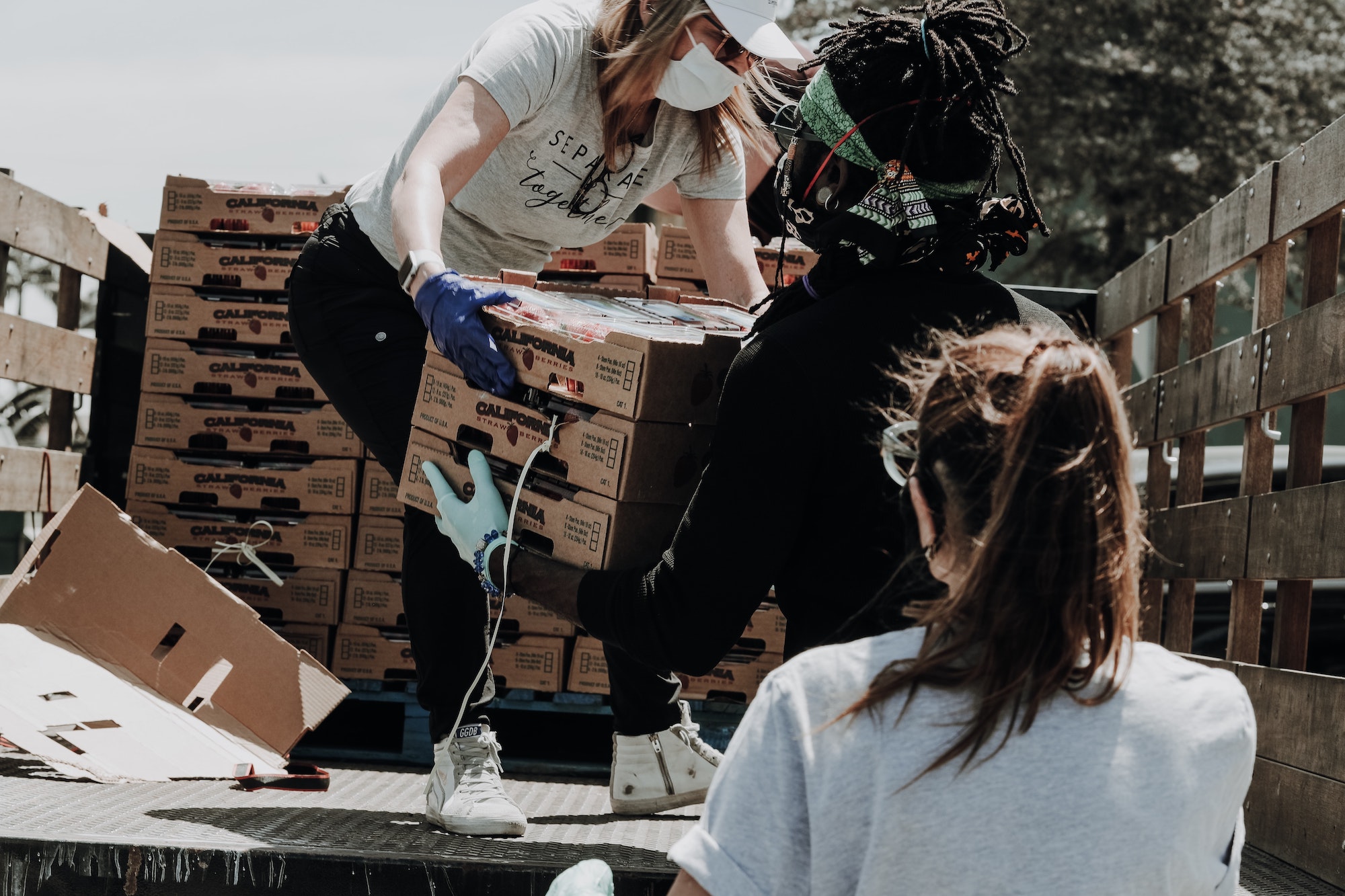
Since August, 2020, FFGE has been delivering foods to low-income neighborhoods in the Elgin area, making sure people with limited mobility and income are able to have access to fresh foods.
We sought out neighborhoods:
- with around 20% of their population below the poverty line;
- were identified to us by government officials as being places were there was considerable human need;
- were not close to readily available sources of food (grocery stores).
We wanted to get food to where the need was greatest, steering away from the mass distribution sites
that give a box to anyone who can drive up and get one. Amongst the various food distribution
strategies employed in 2020, this seemed appropriate to our size and values: reaching people in need in
a community like greater Elgin that does not have large areas of poverty.
We aimed to reach 100 families a week–and did so–in area mobile home courts and the broader, northeast side of Elgin.
The program was launched with funding support from a special grant from the Illinois Treasurer’s Office, and
utilized food that was part of the Department of Agriculture’s Coronavirus Food Assistance Program
(CFAP). Such food was free, with no restrictions on how they were distributed, ideal for
communities like Elgin.
We’ve done this for a year now. What have we learned?
- It’s harder than it looks. Key to the success of the program is having timely leafletting of the
target neighborhoods. Marketing is essential to having food available to people. - There were some wild swings with the CFAP program: times the food did not arrive on time,
times the food was sadly outdated. A great idea, but there were reasons that it was
discontinued by the Department of Agriculture. We do better packing our own boxes with
volunteers. - Some of our targeted areas were not as in-need as we expected. With not enough demand, it wasn’t worth the cost and effort to go to those neighborhoods. Conversely, some neighborhoods with high needs also have high levels of assistance, so our efforts were not needed there. We have adjusted our deliveries to places of demonstrated need, and are taking care to interview people in those neighborhoods to learn how best we can be of service.
The program will continue thanks to a grant from the Conagra Foundation and others.